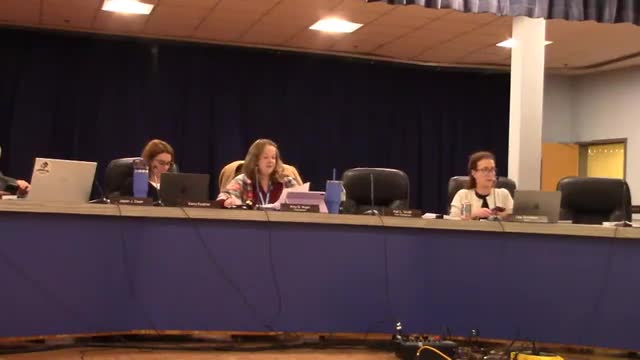Cumberland School Committee declines to authorize feasibility study on project labor agreement
Get AI-powered insights, summaries, and transcripts
Subscribe
Summary
After presentations from union and nonunion legal experts and public comments, the Cumberland School Committee took no action on a request to commission an independent feasibility study into using a project labor agreement for the B.F. Norton school construction project.
The Cumberland School Committee on Oct. 23 heard two hours of presentations and public comment but did not authorize an independent feasibility study to determine whether a project labor agreement (PLA) should be used for the B.F. Norton school construction project.
The committee convened the discussion after public testimony and presentations by attorney Greg Mancini, executive director and general counsel of BuildRI, who urged an objective study, and attorney Chris Whitney of Pierce Atwood, who argued a study at this stage would cause delay and added cost. After questions from committee members and extended back-and-forth among presenters and union leaders, Chairwoman Vogel said, "I'll take that as no action," ending the matter without a formal vote.
Why it matters: proponents said a PLA could secure steady access to skilled labor, reduce the risk of job disruptions and protect workers from wage theft; opponents and the superintendent's counsel warned that seeking a study now would likely delay a project already under contract and could jeopardize state reimbursement timelines. Committee members repeatedly expressed frustration at receiving the request late in the planning and contracting process.
Supporters' case. Greg Mancini and multiple union representatives told the committee PLAs are commonly used on major school and public projects in Rhode Island to ensure labor stability and worker protections. Mancini said an objective feasibility study is the appropriate legal step before deciding to use a PLA and cited multiple recent local studies and projects that, he said, reached similar conclusions. Union leaders, including Michael Sabatoni of the Rhode Island Building and Construction Trades Council, urged the committee to “do the exercise” of an impartial study so the town would have an evidentiary record if a PLA were recommended.
Opponents' case. Chris Whitney, who has advised the school committee and administration on construction issues, said the timing of the PLA request — after the construction manager's guaranteed maximum price (GMP) recommendation and with a substantial portion of the project already procured — made commissioning a study now impractical. Whitney warned that the process of selecting an impartial study firm and completing a thorough analysis could take weeks, leading to an estimated 10–14 week delay; he cited Colliers and Consigli figures for weekly administrative and renegotiation costs and said the delay risked missing a June 2027 completion milestone tied to Rhode Island Department of Education (RIDE) reimbursements. Whitney told the committee those delays and contract upheaval could increase project costs and threaten the town's ability to receive about $22 million in state reimbursements, which he said could be “a disaster” for municipal finances.
Public comments and local perspective. Several residents and trade-affiliated speakers addressed the committee during the public comment period. Union advocates emphasized worker protections, apprenticeships and enforcement against wage theft; local apprentices and residents described the PLA as a route to reliable, local employment and training. A member of the building committee and other residents asked detailed questions about how a PLA would affect nonunion bidders, fringe benefits, and specialty subcontractors.
Committee reaction and conflicts of interest. Multiple committee members expressed frustration that the PLA request and supporting materials arrived late in the procurement schedule. Two committee members — who disclosed ties to unions or contractors — recused themselves from the PLA discussion earlier in the meeting. Committee members asked detailed legal and scheduling questions of both presenters but ultimately did not direct staff to commission a study.
What was decided. The committee did not authorize the independent feasibility study, and no formal motion to commission one passed. The school committee instead left the status quo in place: the project continues under the existing procurement and GMP process. Committee members said they remain concerned about both protecting the construction timeline and responding to worker-protection claims raised during the hearing.
Looking ahead. The committee did not set a further timeline or next steps on the PLA question during the meeting. Presenters and union representatives asked the district to consider a study in the future; legal counsel and the construction manager cautioned any such effort should occur earlier in the procurement cycle to avoid schedule and cost impacts.
